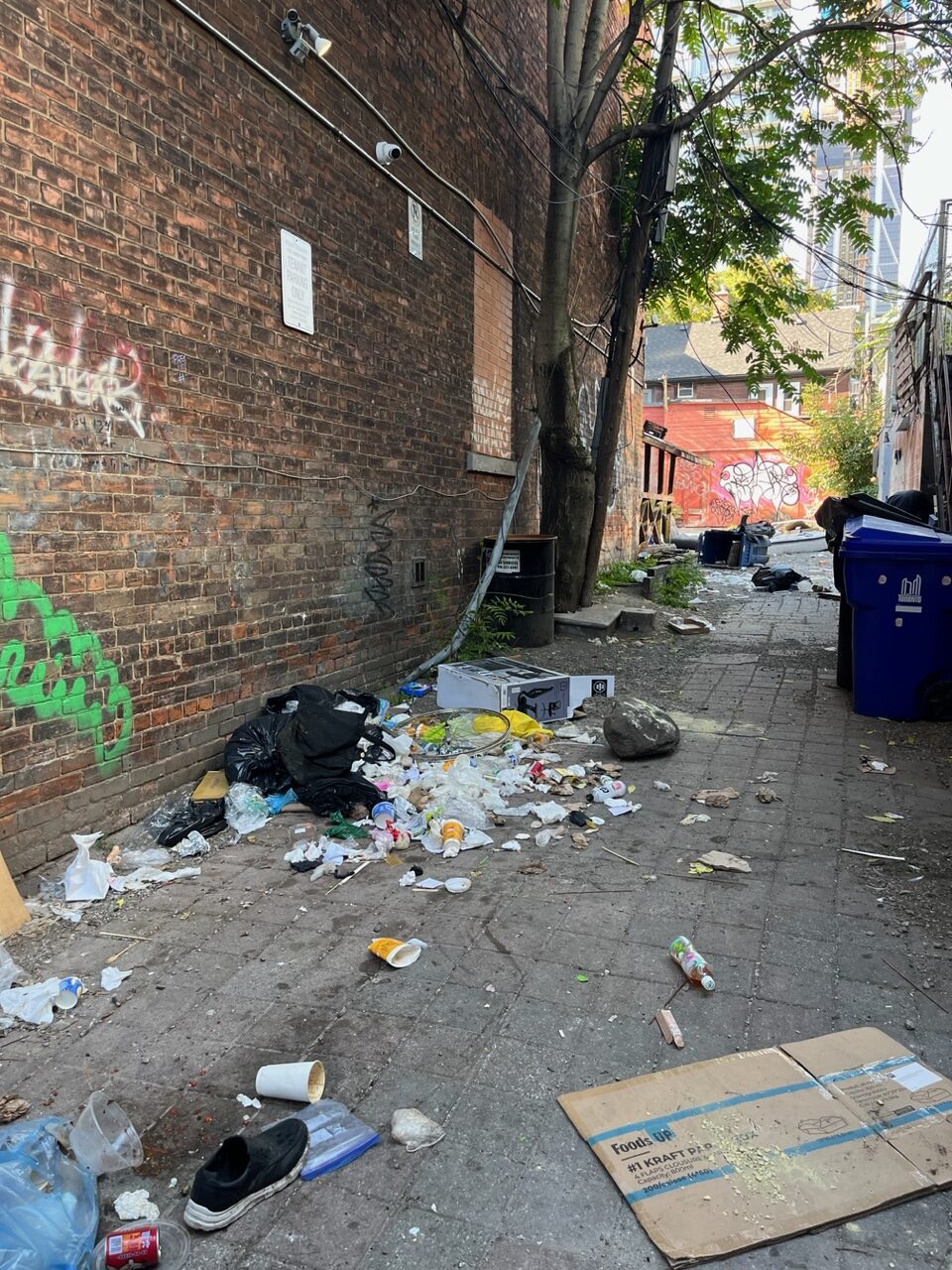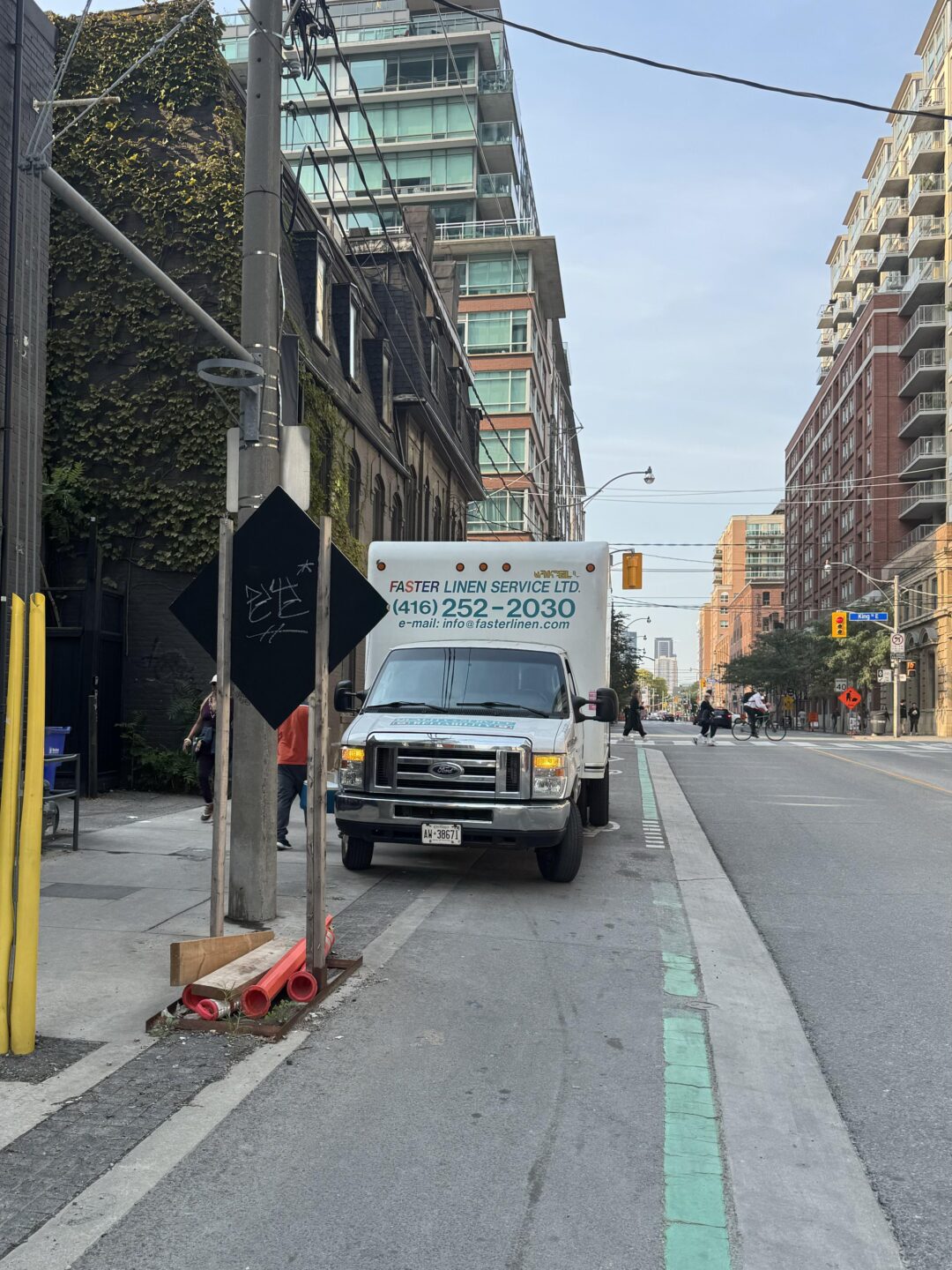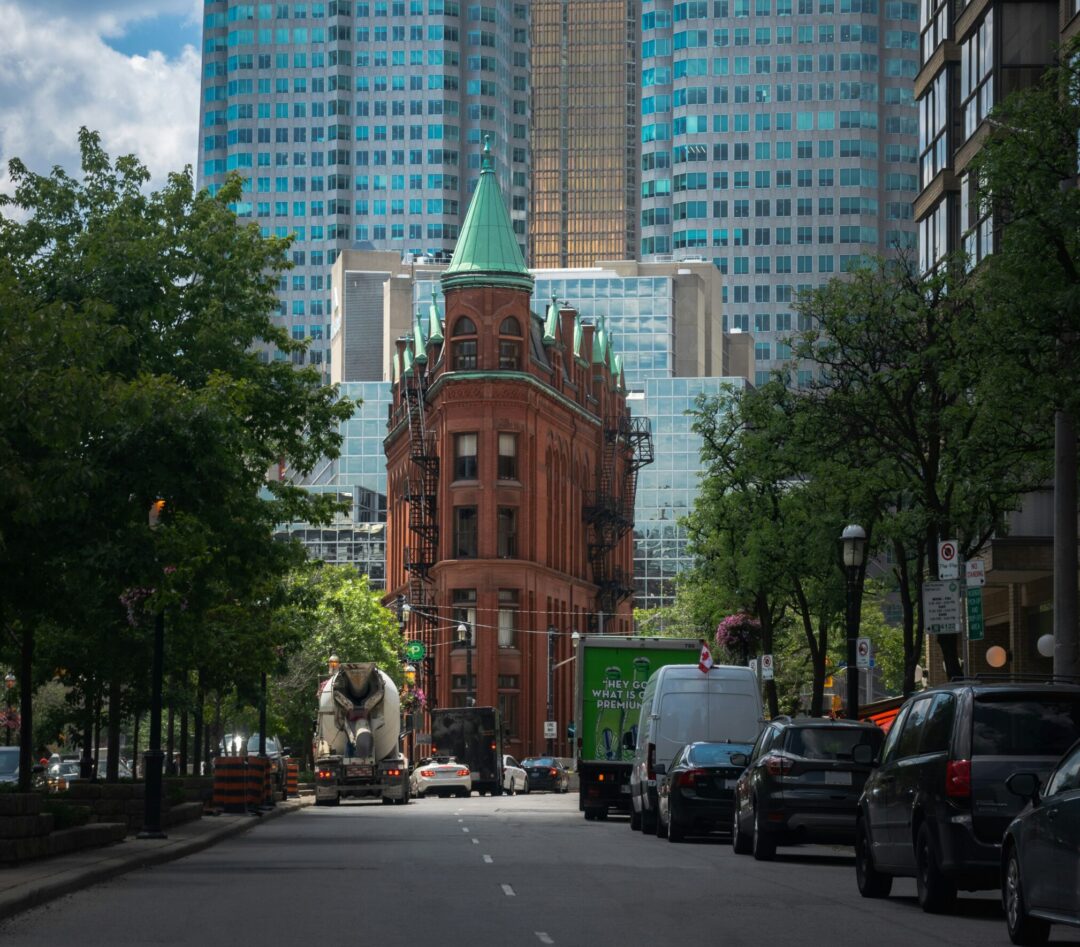Laura Hull –
An orphaned laneway nestled between St. Joseph Street and Irwin Avenue has become a hotspot for antisocial behavior, leaving local business owners and residents frustrated.
Despite repeated pleas to Ward 13 Councillor Chris Moise, little progress has been made in resolving the laneway’s legal and maintenance challenges.
The problem is the laneway, just west of Yonge Street, is a privately owned property with no living owner. The last known owner died over a century ago, according to property records. This complicates city intervention, as municipal services typically cannot operate on private land.
“The state of that laneway is appalling,” said Sara Sadrolhefazi, owner of Nabulu Coffee, which operates out of 6 St. Joseph Street. “It’s become a dumping ground for garbage, drug paraphernalia, and even human waste. I’ve had to call the police multiple times to report suspicious activity just steps away from my café.”
“I’ve been in contact with the police, the fire department, 311, and many different city departments,” she added. “Everyone has pointed me to someone else to figure it out. In the meantime, I’ve had to bear the financial, physical, and mental load of cleaning up property that isn’t mine.”
Residents and business owners have also reported feeling unsafe using the laneway, especially after dark, Sadrolhefazi said. Litter and debris are piling up.
A letter addressed to Councillor Moise, signed by multiple business owners and residents around the laneway, outlined its dire condition and impact.
“We have witnessed individuals using the laneway for illicit activities, including drug use and vandalism,” the letter reads. “The situation has escalated to the point where we are concerned for the safety of our employees, customers, and residents.”
The letter called for immediate action from the city, including regular clean-ups and potential acquisition of the laneway to bring it under municipal jurisdiction. In response, Moise acknowledged the seriousness of the situation but pointed to the legal complexities.
“Orphaned laneways are an uncommon issue in the downtown that unfortunately create very real impacts on residents and businesses,” Moise said in a statement to the bridge. “As these privately owned laneways are complicated from a legal perspective and frequently substandard compared to typical public laneways, the City has historically refused to acquire them given the potential liability.”
While city staff facilitated a cleanup of the laneway earlier this year, Moise stressed that the city cannot assume responsibility for private property simply because an owner is absent. He recommended that adjacent property owners seek a legal solution by identifying heirs or petitioning the courts to acquire the property.
He also urged local businesses and residents to take collective responsibility for its upkeep in the absence of a formal owner. “Everyone and every business deserves to feel safe,” he said.
Sadrolhefazi said her landlord and lawyers are trying to determine the status of ownership. “But I’m just trying to run my business, I don’t know politics, I don’t know bureaucracy,” she said.
The city told the bridge that staff have been working on addressing complaints received in September. However, “lack of consistent maintenance and oversight of these addresses has accelerated the waste issue as it creates a neglected appearance of land,” its statement read.
The city has issued violation notices to properties with fire escapes, stairwells, and door nooks littered with garbage. Meanwhile, Municipal Licensing and Standards, Streets to Homes, Solid Waste, and Toronto Police Services have collaborated on an interim cleanup.
However, business owners like Sadrolhefazi remain skeptical about long-term solutions.
“It feels like the responsibility is being pushed onto us when the real issue is that this laneway has no owner and no oversight,” she said. “We’re doing what we can, but it’s not enough.”




